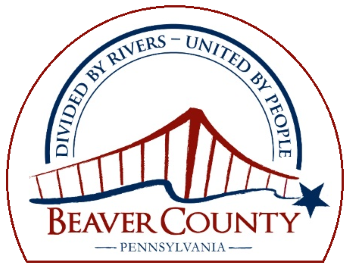Mental Health - Services
Base Service Unit Central Intake & Case Management
Services include intake, assessment, life management planning, psychiatric evaluation/consultation, treatment planning and service authorization. Case management services include monitoring, advocacy, service planning, and continuity of care. Types of case management include: Intensive Casemanagement, Resource Casemanagement, Service Casemanagement, Student Assistance (S.A.P.) Casemanagement and Early Intervention Casemanagement. In addition, services include CASSP program coordination, BHRS and Family-Based Mental Health programs coordination.
Representative Payee Program
For adults who are seriously mentally ill. This service provides financial management assistance to individuals referred by MH/MR Direct Services who are receiving Social Security Supplemental Income (SSI) and need assistance in handling their monthly checks.
Social Rehabilitation
This service is designed to teach or improve self-care personal behavior and social adjustment for persons with a mental disability or children and adolescents with emotional disturbance. These activities include: social skills development to enhance habits, attitudes and social skills; cognitive development, affective development, communication development, physical skills development services; educational services and general skill levels to enhance employability; therapeutic recreational and summer programs for children and adolescents to maximize individual development.
Inpatient
Acute inpatient mental health treatment is the most intensive level of psychiatric care. Multi-disciplinary assessments and multi-model interventions are provided in a 24-hour secure, protected, medically staffed and supervised treatment environment. Typically, individuals in need of inpatient display acute psychiatric conditions or exacerbation of symptoms associated with a more persistent, recurring disorder.
Partial Hospital (Day Treatment)
This is nonresidential treatment services for adults with moderate to severe mental illness. The activities include: psychiatric, psychological and psycho-social treatment services; health and nutrition information, child care and family planning information; instruction in the basic care of the home or residence for daily living; basic personal financial management; medication administration and evaluation.
Child/Adolescent Partial Hospitalization Program (Day Treatment)
This is a day treatment program for children and adolescents between the ages of 5 and 17, or if between the ages 18-21, must be enrolled full-time in High School or Secondary Education equivalent, or are in the custody of CYS. The consumer’s risk to self, others or property is not so serious as to require 24-hour medical/nursing supervision, but does require structure and supervision for a significant portion of the day. Consumers receive a minimum of (3) hours of planned treatment a day, 5 days a week, which includes therapeutic, recreational, social and vocational activities via individual, group or family interventions. In addition, a minimum of (2) hours of tutored educational supervision will be provided daily in coordination with each consumer’s home school district. Psychiatric services occur as part of admission, continuation of treatment and discharge planning. Each consumer will be referred for additional services as determined by his/her individual needs.
Outpatient
This level of care is for children/adolescents and adult with a mental illness or a serious emotional disturbance who require treatment and service coordination with a plan for the development of optimum functioning. Plans are developed after the assessment phase and then reviewed on a regular basis. Individual therapy sessions are ordinarily between 30 minutes and one hour. A psychiatric consultation for medication evaluation will be obtained with collaborating effort from the psychotherapist and psychiatrist as necessary to address an individual’s specific needs.
Emergency/Crisis Intervention Services
This service is available 24 hours a day, 7 days a week, 24 hour telephone hot-line and walk-in crisis services are provided for individuals in crisis. Services include screening calls, counseling, consultation, referral and face-to-face assessment and crisis resolution.
Residential
This service refers to care, treatment and rehabilitation services provided to persons in a community-based residential program. Community residential services are intended for persons who will benefit from social and personal development services away from their own homes or family who cannot be maintained in their own homes. The services include but are not limited to: 1) Community Residential Rehabilitation services (CRR); 2) Crisis Respite; 3) Long-Term Structured Residential (LTSR).
Vocational Rehabilitation
COMMUNITY EMPLOYMENT: Employment in community setting or employment related programs, which may combine vocational evaluation, vocational training and employment in a non-specialized setting. Included are competitive employment, supported/supportive employment and industry integrated vocational programs.
FACILITY BASED VOCATIONAL REHABILITATION: Programs designed to provide vocational training within a community-based, specialized facility (sheltered workshop) using work as the primary modality.
Psychiatric Rehabilitation
Assist individuals with things such as understanding their illness, self-care, budgeting, symptom/medication management and developing or building on skills that would enhance their employability and improve role performance.
Family Supportive Services
This service provides supportive services designed to enable persons with mental illness; adults, children and adolescents, with or at risk of serious emotional disturbance and their families, to be maintained at home with minimal stress or disruption to the family unit.
